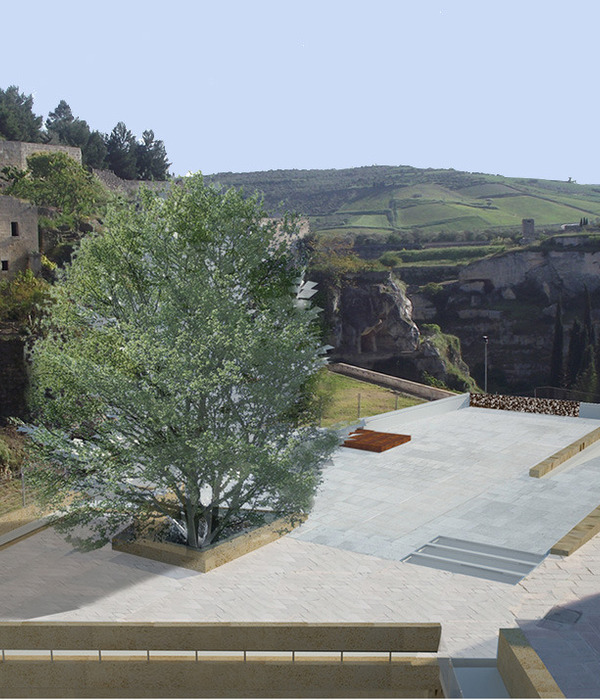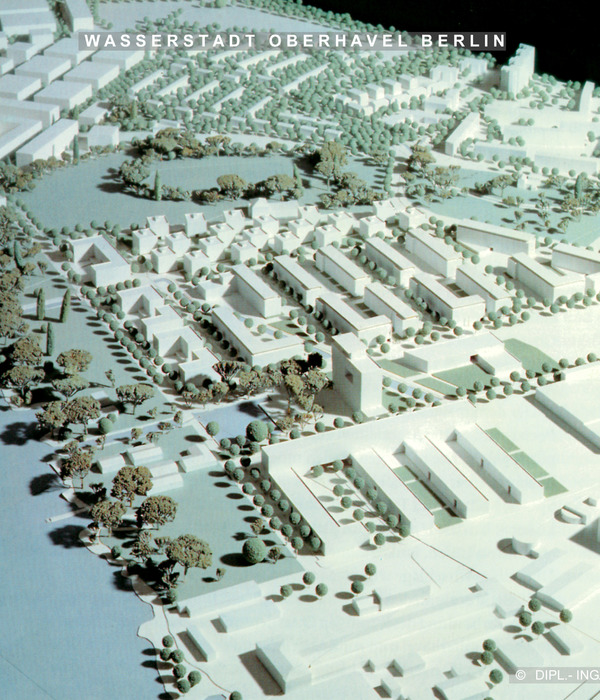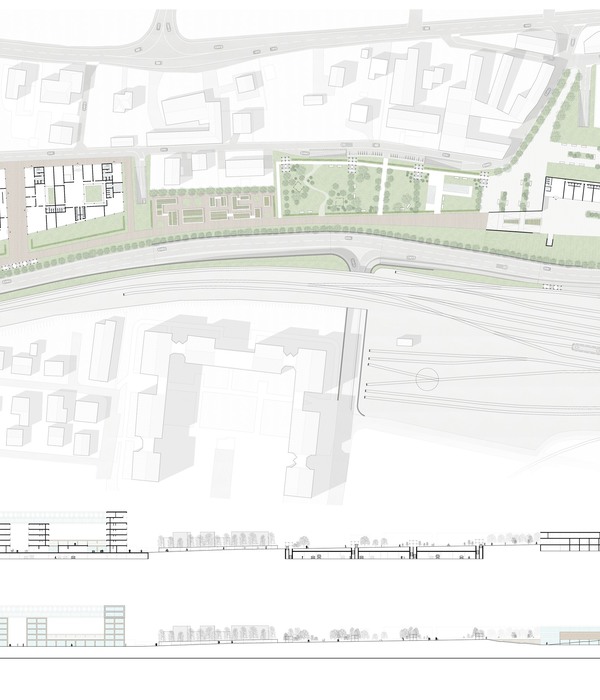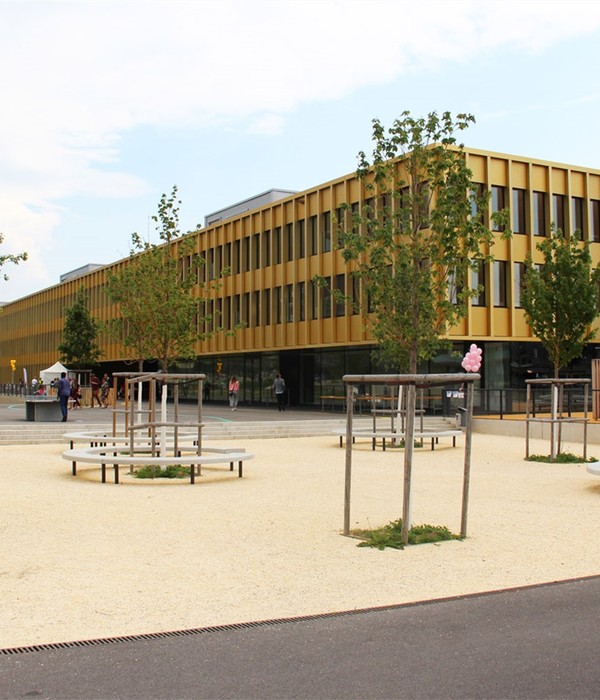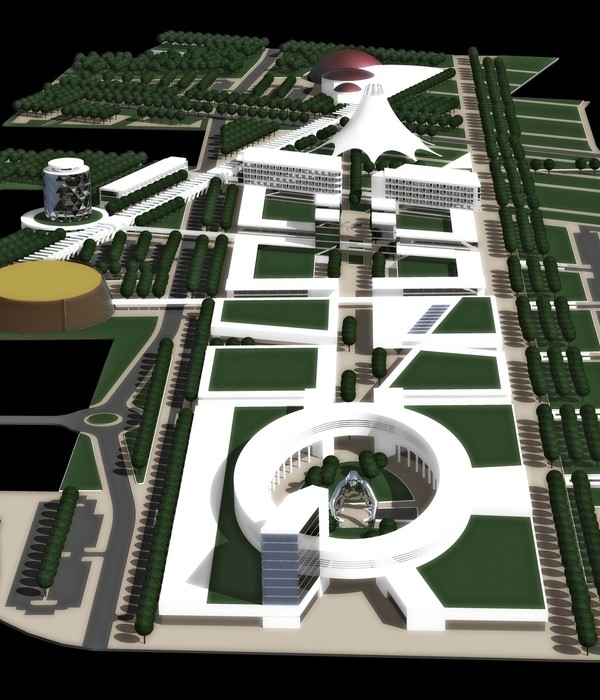2016年底,为了进一步完善中央创新区的生态基础设施建设,南通市政府着手推动南通紫琅公园(以下简称“紫琅公园”)的景观规划设计。位于该区域中心的紫琅公园,占地266公顷,其中生态栖息地面积150公顷,具备防洪调蓄能力的水域面积116公顷。场地中规划了一条超过14公里的生态慢行绿道和一条长达20公里的生物走廊,不仅将人与自然相连接,也为迁徙鸟类、授粉昆虫等各种物种提供了赖以生存繁衍的栖息地。
▼项目鸟瞰,aerial view ©AECOM(摄影师::江丹、陈亮)
As an essential part of the Nantong Municipal Government’s plan to promote the local central innovation zone, the planning and design of Nantong Zilang Central Forest Park (Zilang Park) started at the end of 2016. Located at the center of the zone, the park covers an area of 266 hectares, including 150 hectares of ecological habitat area and 116 hectares of water area with flood control and storage capacity. A 14-kilometer ecological greenway and a 20-kilometer biological corridor are planned on the site, which not only connects people with nature, but also improves biodiversity and stormwater management.
Moreover, the project brings great social benefits to the local area, including a rise in oxygen levels in the atmosphere, a drop in noise pollution and a reduction in urban heat island effect. The improved ecological infrastructure has also created new opportunities for social development. From 2019 to 2020, the central innovation zone achieved a substantial increase in the total number of tourists. The investment from high-tech companies increased 2.4 times on a year-on-year basis, effectively boosting local employment in Nantong.
▼滨水开放空间,waterfront open space ©AECOM(摄影师::江丹、陈亮)
项目所在地南通地处长江中下游平原,河道资源丰富,但也遭受着经常性的洪涝问题。在汛期和台风季节城市内涝尤其严重,并对城市基础设施造成较为严重的损害。现状水质仅为Ⅴ类至Ⅵ类水,主要污染源为乱排放的生活污水和过度使用的化肥及杀虫剂。
Nantong’s geological location and natural environment initially brought challenges to the park’s design. The city is located in the Yangtze River Plain and suffers regular flooding due to its copious watercourses. It becomes worse at the onset of typhoons. Radical urbanization and contamination from the overuse of pesticide also contributed to the heavy destruction of watercourses.
▼现状水文条件,existing water condition ©AECOM
针对现状问题,项目团队意识到“水敏感城市设计”是应对挑战的有效方法,提出了一个综合的韧性水文设计框架,将连续的水渠和两个人工生态湿地连接起来。并模拟现状水动力条件,建立了一个水力模型,以评估对不同水体类型的水质自净能力,以最终得出的结论对设计方案进行指导。研究表明,我们设计的生态系统理论上可在7天内实现水体自净。
To mitigate these long-standing problems, AECOM used the “Water-sensitive Design” approach. Since most of the existing watercourses were located south of the site, and the water systems on the two sides were segregated, rainwater could not be stored.Based on this framework, a hydraulic model was designed to evaluate the water’s self-cleaning capacity. It shows that the theoretic self-cleaning period is within seven days but is estimated to take up to 15 days considering the Yangtze River current and the water quality of the inner course.
▼以水道、湿地和湖泊为基础的水敏感景观体系,resilient approaches ©AECOM
▼水动力模型研究,hydraulic stimulation to evaluate of water self-cleaning ©AECOM
实际操作中结合到长江的潮汐情况以及内河水质,实际净化周期基本控制在15天内。结合实验结果,搭建以水道、湿地和湖泊为基础的水敏感景观体系。人工湿地作为生态海绵过滤器,对进入南湖之前的水道水质进行过滤净化。过滤后的水体进入南湖,通过大型湖区发挥调蓄作用以减轻洪涝的影响。目前,景观湖体水质已经提升至III类水。
Our design team proposed a framework for an integrated and resilient waterbody, which connects consecutive channels and two artificial wetlands. The wetlands serve as eco-sponge filters to purify the water before entering the south lake. In addition, the team also applied a technology to restore microbe and aquatic creatures in creating a self-cleaning water system in the south lake. This technology activates microbe Plant Growth-Promoting Rhizobacteria (PGPR) reproduction by supplying needed nutrition, and stabilizes the ecological equilibrium, which is significant in the water self-cleaning system.
▼生态湿地,ecological wetland ©AECOM(摄影师::江丹、陈亮)
▼多种样式的桥连接湿地,various bridges connecting wetlands ©AECOM(摄影师::江丹、陈亮)
▼水体绿化,water greening ©AECOM(摄影师::江丹、陈亮)
目前,将于2020年底全面完工的紫琅公园为中央创新区的生态平衡和社会效益奠定了良好的基础。高比例的绿化率成为提升公园区域空气氧离子含量、降低人体体感温度、减少环境噪音、增加空间舒适度的有效手段。生态设施的完善也为社会发展创造了新的机会。生态设施的完善也为社会发展创造了新的机会。2019年至2020年间,紫琅湖的落成令中央创新区实现了大幅度的游客总量增长,吸引高新科技企业投资同比增长2.4倍,为南通当地就业率提升高效助力。
▼滨江景观,riverside landscape ©AECOM(摄影师::江丹、陈亮)
▼滨江步道,pedestrian strip along the water ©AECOM(摄影师::江丹、陈亮)
作为这片滨水森林公园的景观设计团队,AECOM不仅全面保护、保育和提升了150公顷的野生动植物栖息地,恢复当地生物多样性,更从韧性生态的角度出发,通过修复河道、营造山体和山谷、丰富的疏林草坪来建立稳定的风廊微气候系统,以缓解城市热岛效应,打造可持续发展的都市绿心。设计后的公园包括三大部分:山林和河道位于公园的北部,园区中部营造生态湿地,南湖则是公园最重要的滨水开放空间。
▼游客进行不同娱乐活动,various activities ©AECOM(摄影师::江丹、陈亮)
Set to be completed by the end of 2020, the park is now a cultural destination for people of all ages and plays a role in ecological education:
The north zone is designed to be a forest park surrounded by watercourses. The open lake and lawns provide a pleasant outdoor space while the various landforms and waterbody create wind corridors to improve regional micro-climate by decreasing temperature and carbon dioxide.
The middle zone is an artificial wetland, which is also a bio-diverse paradise. More than 60 kinds of native flowering plants and 40 native tree species were cultivated for different seasons. An ecological water forest was created, providing natural habitats for wild birds and insects, and showing visitors the process of wetland succession.
The south lake is regarded as a “bio-tank” which collects water from the whole region with a resilient function. It interconnects with a bio-system that is built on green areas and communities, such as stormwater collection gardens and water shed mitigation facilities. Additionally, the area provides a new destination for local people to engage in various activities along the lake such as jogging and sight-seeing.
▼小径,narrow paths ©AECOM(摄影师::江丹、陈亮)
▼道路绿化,road greening ©AECOM(摄影师::江丹、陈亮)
{{item.text_origin}}


